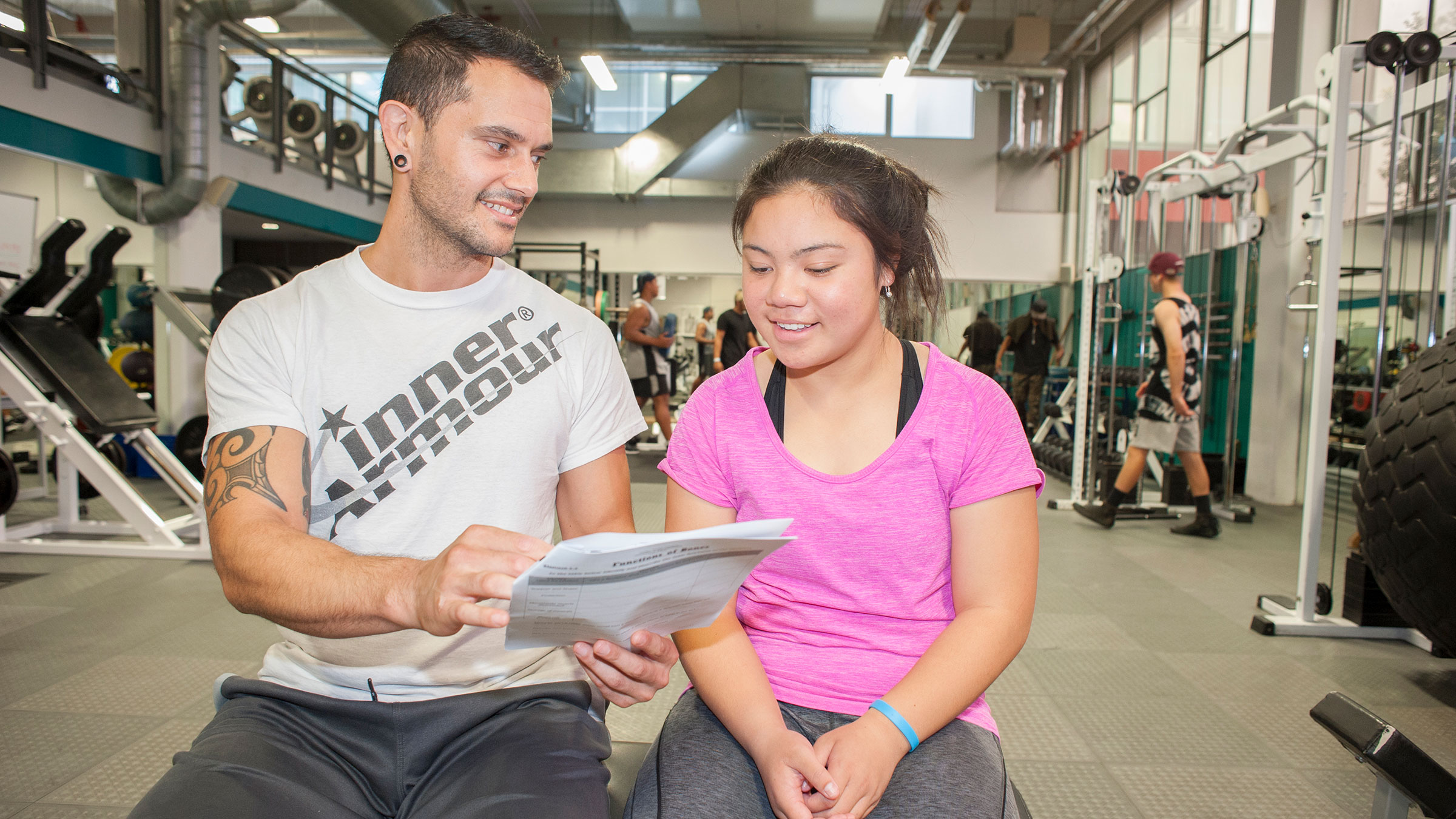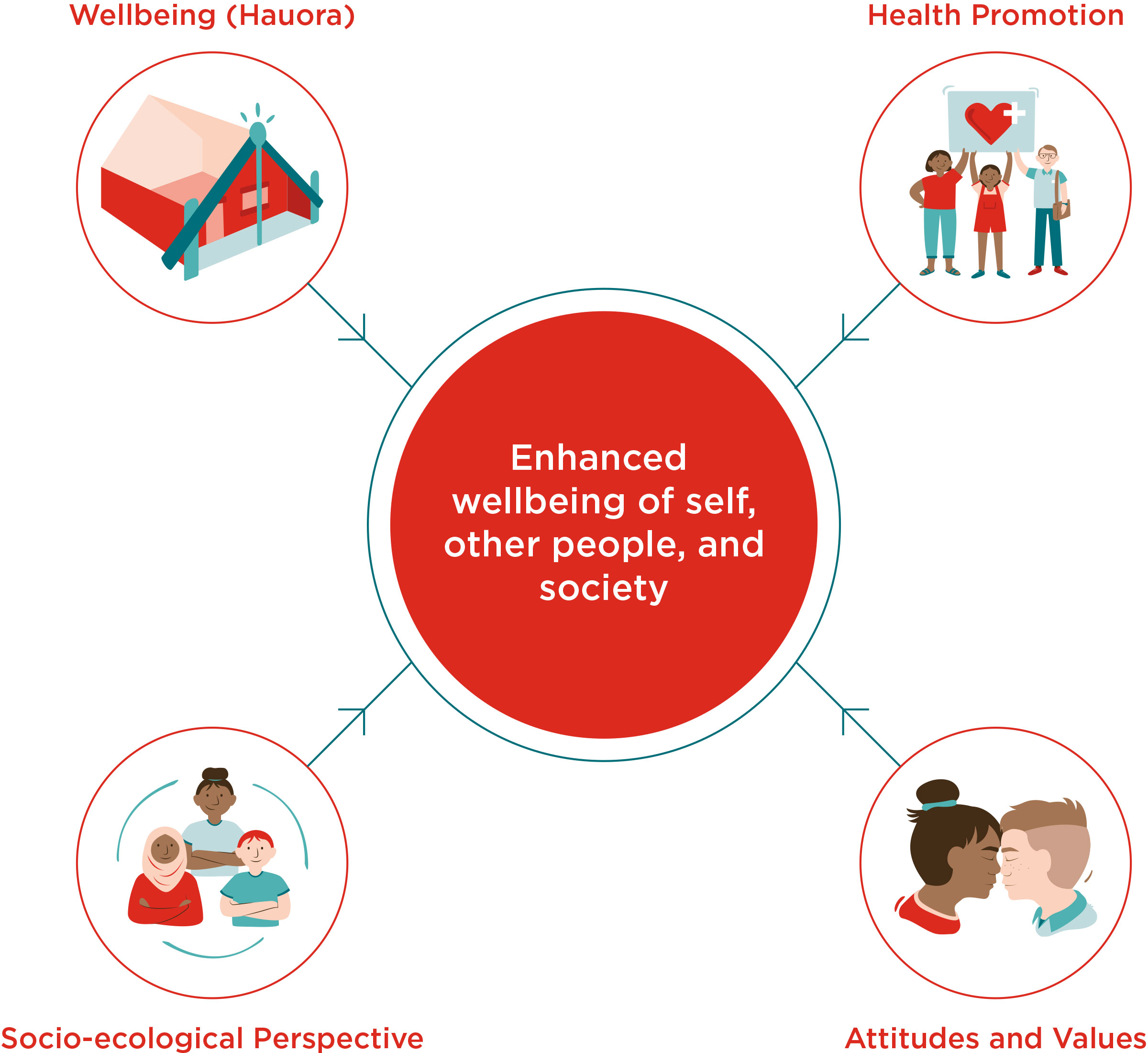Understanding sport studies

Learning in sport studies is intended to address more than the physical skills and tactics required to play particular games. There are three dimensions to consider:
- Learning in sport by providing opportunities to learn particular physical skills, rules, and strategies to play a range of games and sports. Ākonga can also develop the knowledge, skills, and attitudes for umpiring, coaching, and organising games or tournaments.
- Learning through sport by providing opportunities to learn and practice skills and behaviours such as fair play, teamwork, inclusiveness, tolerance, social responsibility, leadership, effective communication, and managing competition.
- Learning about sport by providing opportunities for students to understand sport from scientific, technological, social, and cultural perspectives.
You are encouraged to explore issues relevant to the needs and interests of your ākonga. Some themes that could be explored include:
- Identity and sport: How does sport develop personal and community identity? Ākonga learn to consider the meaning of sport to individuals, parochialism, nationalism, patriotism, ethnicity, gender, and winning and losing.
- Sport and business: Ākonga can consider how sponsorship, professionalism, politics and commercialism may affect the version of sport we see as spectators. They can explore the effects of personal ethics or the sport performance of elite athletes, and the idea of human bodies as commodities.
- Media and sport: Ākonga can examine sport as it is presented in the daily media, through language, images, signs, and metaphors. What sports are privileged in the media? What status do different sports have, and what groups seem to be advantaged/disadvantaged? How does the media representation of sport relate to the construction of personal and group identity?
- Sports equipment: Ākonga can consider aspects of the design, manufacture, and promotion of sports equipment. How accessible or useful is it to everyone? What technology is involved? What social implications are there?
- Pleasure of sport: Why is sport enjoyable for some and not for others? How can more people be encouraged to enjoy sport? Ākonga can investigate notions of excitement, fair play, competition, challenge, skill, aesthetics, and festivals.
- Sport and health: Many people assume that sport is associated with physical and mental health, for example the development of character, well-being, fitness, and injury prevention. Ākonga can evaluate the validity of those assumptions, and how sport may contribute to low levels of health.
- Gender diversity and sport: Ākonga can explore the increasing awareness of gender diversity in sport. What are some ways to remove the homophobic language in sport? What opportunities exist for people with non-binary gender identities to participate in sport?
Sport studies and the underlying concepts

The four underlying concepts of health and physical education can be explored through sport studies.
Hauora
Sport studies provide opportunities for individuals and wider society to achieve hauora via the four dimensions. Here are some examples:
- Taha tinana – physical well-being: participating in physically active games and sport; preparing your body for participation in activity (warm-ups, stretches, etc); use of safety equipment; avoiding physical injury.
- Taha whānau – social well-being: being part of a team; playing with and against others; belonging; support.
- Taha wairua – spiritual well-being: seeking personal identity and meaning through meeting challenges; being the best I can and feeling good about that; the effects on my wellbeing from connecting to the places and spaces I am active in.
- Taha hinengaro – mental and emotional well-being: learning strategies/tactics for particular games; respecting self and others; managing the emotions of winning and losing; taking diverse sporting roles.
Health promotion
Health promotion is defined as positive action towards health as opposed to treatment of illness.
The effective promotion and organisation of school sport should reflect the needs of students and ensure that all students have the opportunity to:
- participate to the highest level of their interest and ability
- experience enjoyment and achievement
- become competent and enthusiastic participants
- practise fair play (in the widest interpretation of the term) in all situations
- experience and manage competition
- review current practices around their sports programmes by identifying and acting on areas for improvement
- identify new opportunities to participate in sporting opportunities, with systems in place to make this successful
- design programmes that encourage the school and wider community to collaborate to provide positive sporting experiences.
Health promotion incorporates ideas around affirming diversity, social justice, and supportive environments. Ākonga can use those ideas to reflect on their own attitudes and behaviours, and take action to establish supportive practices, policies, programmes, and environments.
As part of sport studies ākonga can:
- understand how the environments in which they learn and play can affect their own personal well-being and that of society
- develop skills that empower them to take action to improve personal and societal wellbeing
- help to develop supportive links between the school and the wider community
- help to develop supportive practices to ensure physical and emotional safety for those they play with.
A socio-ecological perspective
A socio-ecological view connects individuals to influences in wider society, and recognises that physical education and sport cultures are not divorced from broader social, political, economic and cultural relations.
In sport studies, by considering the socio-economic perspective, ākonga learn to:
- consider their own views of sport (both in school opportunities, external opportunities and community/national/international levels) and how choices and actions they make can influence the choice and behaviours of others
- understand the different viewpoints and practices of others and wider society around sport
- reflect on how different viewpoints and practices may influence their personal choices and behaviours around sport
- critique information contained in the media which focuses on sport, health, and body image
- extend, and critically appraise the deliberate use of play, exercise, sport and other forms of physical activity, within individual and social contexts
- take responsibility for actively contributing to their own wellbeing and that of other people.
Deepening this learning should encourage ākonga to develop mutual care and responsibility. It is hoped that deeper learning will also encourage ākonga to contribute to sport in a way that adds to theirs, others, and societies wellbeing.
Sport as mass culture has a major impact on how young people make sense and meaning of sport and physical activity. Their experience of sport; how they use, shape and exercise their bodies; the place of sport in society – all have an impact on how they see themselves. Ākonga can also explore how sport tends to advantage already dominant individuals and groups.
Attitudes and values
Sport studies are a context for exploring how important personal identity is to wellbeing. Ākonga can also explore how life skills that promote independence, autonomy, and feelings of self-worth are important for wellbeing.
Sport studies provides opportunities for ākonga to:
- enhance their feelings of competence and self-worth by challenging themselves and achieving mastery
- take responsibility for their participation and achievement; developing self-determination
- give and receive appropriate encouragement and technical feedback; developing positive attitudes to learning and skill mastery
- experience fun and excitement; developing positive attitudes to sport and exercise
- reflect on the negative feelings and attitudes that exist for many ākonga when they consider participation in sport and competitive games
- explore the social, cultural, economic and environmental factors that influence the attitudes, values, and practices associated with sport.